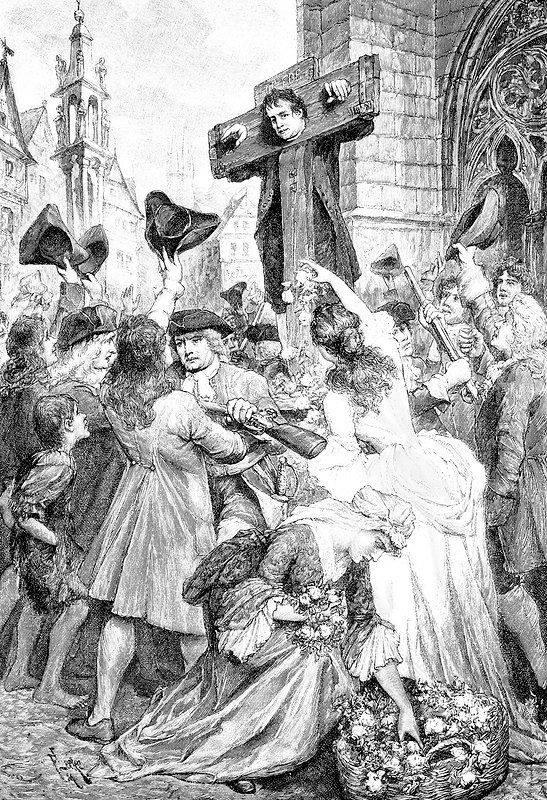On this day in 1703:
English trader, journalist and later the renowned writer of “Robinson Crusoe”, Daniel Defoe was placed in a pillory for the crime of seditious libel after publishing a politically satirical pamphlet but was rather pelted with flowers.
Born in London in 1660, Daniel Defoe came from a family of successful non-conformists who were not afraid to dissent against the majority. Daniel made a living as a trader but was also outspoken and active in the socio-political issues.
During his time religious dissenters were among the “radical” protesters against the church and political establishment for suppressing dissent. In 1702 he published a pamphlet “The Shortest Way with Dissenters,” in anonymity to the chagrin of the authorities.
The pamphlet satirically suggested that instead of passing laws against all religious dissenters – including Protestant “nonconformists” like himself and many who emigrated to the New World – the easier solution would be to simply kill them.
Unfortunately, Defoe’s proposal was taken seriously by some of the Anglican Tories in government who offered a reward to seek out the author. His publisher ratted him out and he was arrested, tried and sentenced to a huge fine, time in Newgate Prison, and 3 days in the pillory.
The pillory was used to punish minor offenders including cheats, rioters and homosexuals, by shaming them in public. They were pelted by the crowd with rotten eggs, filth, and in extreme cases with stones, saucepans that caused serious injury. Some were killed or maimed for life.
Defoe was put in the pillory on the last three days of July, for an hour each time in three of the busiest places in London – outside the Royal Exchange in Cornhill (near his own home), near the conduit in Cheapside and finally in Fleet Street by Temple Bar.
While awaiting his pillorying Defoe composed a sarcastic poem, “Hymn to the Pillory,” in which he wrote: “Tell us, great engine, how to understand
Or reconcile the justice of this land…” As his friends sold the poem, the public throw flowers instead and drink to his health.
Defoe was sent back to Newgate prison but he could not pay his fine. In November, Defoe’s fine was paid out of secret service funds and he was released. He was later employed to publish a regular newspaper which showed the ministry in a favourable light.
In 1706 Defoe was sent to Scotland as a spy to gather political intelligence and further the projected union with England. He continued to turn out propaganda for successive ministries and later wrote Robinson Crusoe for which he is best-remembered in 1719.












